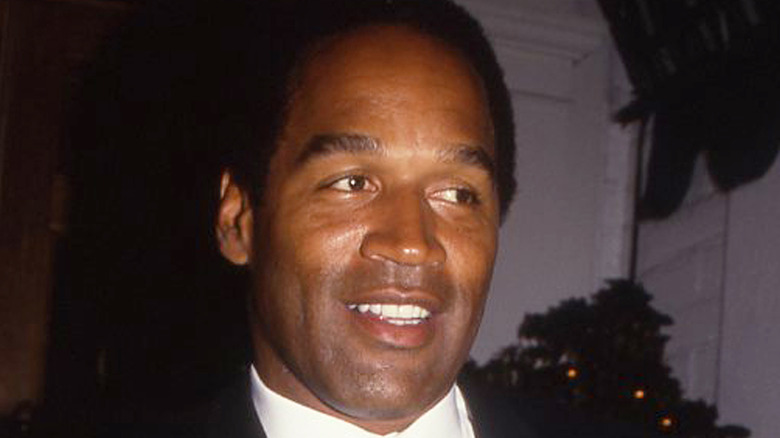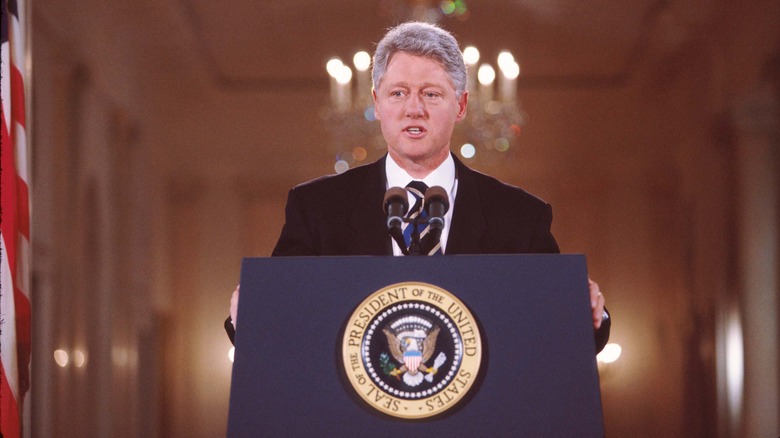The Theory About 1995 That Changes Everything
It's no secret that people today look back on the 1990s with particular fondness. The 1990s is the nostalgia trip of the 2020s; some of the most popular shows on Netflix include '90s classics "Friends" and "Seinfeld," both of which the streaming platform licensed for hundreds of millions of dollars (via The Observer). Those in the know understand that our collective love of the '90s is currently sky-high.
But while it's obvious to all that the 1990s is currently our go-to decade for comforting nostalgia — and, as Cosmopolitan points out, the one from which we're taking cues when it comes to fashion — one expert, the award-winning journalist W. Joseph Campbell, claims that the '90s hold even greater significance for society today. In fact, Campbell picks out one year in particular for special attention in his book, "1995: The Year the Future Began" (via Google Books).
Campbell, who is a tenured professor at American University in Washington D.C., claims in his book that 1995 was a "hinge moment" in American history and that the five major events of the year in question — including the trial of O.J. Simpson, the Oklahoma City bombing, the U.S. involvement in ending the Bosnian War, and the beginnings of the affair between Bill Clinton and Monica Lewinsky that would lead to the President's sensational impeachment, make 1995 the year in which the 21st century really began. But is it true?
Was 1995 really special?
The idea that everything can change in a particular period, or even a moment, is an especially seductive one. But as The New Yorker's veteran historian Louis Menand notes, it doesn't matter whether we as readers find W. Joseph Campbell's thesis about the significance of 1995 believable or not. The power of studies such as Campbell's lies in the fact that they consider a single snapshot of a time and pore over its events in minute detail. In fact, Menand agrees that the 1990s have thus far remained underexamined because it is still an active part of many peoples' memories and because is it considered a time of relative peace and prosperity.
It might be argued that the particular political scandals, wars, acts of terrorism, and celebrity trials of 1995 are, in the grand scheme of things, no more significant than those of any other year. But it is undeniable that there was one event of 1995 that truly heralded a seismic shift in the way we live our lives. That event was Netscape Communications launched their public offering, having risen to prominence on the back of their highly popular internet browser software (via American University).
"The fingerprints of 1995 are all over the present," Campbell claims (via the same source). At no point is Campbell's thesis more plausible than when discussing Netscape, the moment he argues the internet first enters public consciousness, precipitating the widespread use of a technology that would within two short decades irrevocably change the fabric of our lives.

